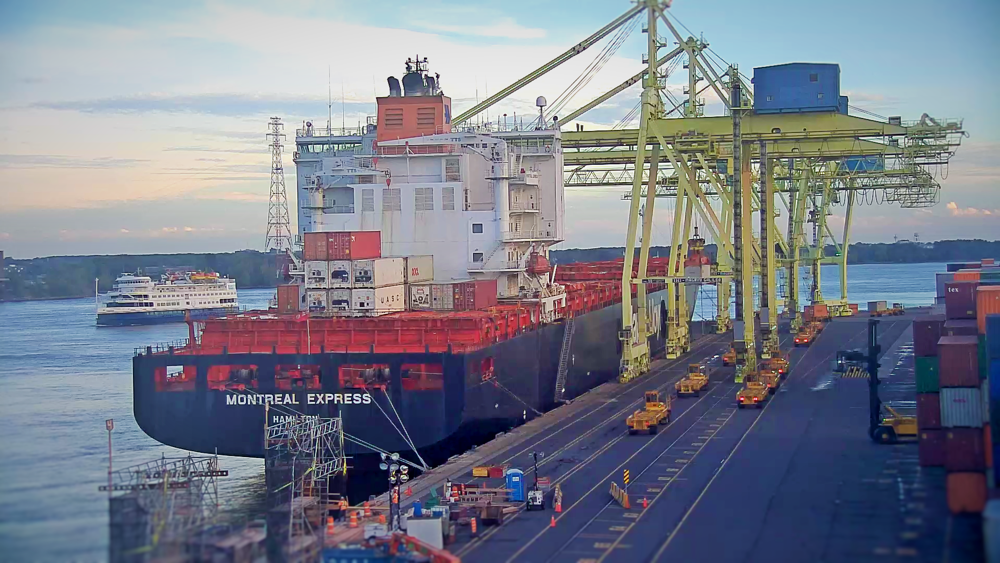By Leo Ryan, Editor
Operations began gradually returning to normal today at the Port of Montreal after the Senate late Friday followed the lead of the House of Commons by passing legislation forcing some 1,150 striking dockers back to work.
Canada’s second largest port has become heavily congested due to the week-long strike and the recent refusal of the dockers to work overtime and on weekends in response to the Maritime Employers Association (MEA) decision to extend work shifts and change guaranteed income arrangements.
In a statement, the Montreal Port Authority (MPA) said there was close to 20,000 containers currently sitting idle on port territory and about 10 vessels waiting in various sectors of the St. Lawrence River to call at the port.
These included three Hapag-Lloyd container ships, the Ottawa Express, the Montreal Express and the Genoa Express, that had been anchored off the pilot station of Les Escoumins, some 260 nautical miles from Montreal.
The resumption of operations and the return to a smooth flow of goods will take several days of work by port workers and supply chain stakeholders, the MPA said. Because of this, clients waiting to import or export goods can expect delays in the coming weeks.
“This new turning point lets the Port of Montreal regain stability and the capability to fulfill its strategic role as a public service without long-term interruptions. This role is especially important while we are still in the middle of a pandemic,” said Martin Imbleau, President and Chief Executive Officer of the Montreal Port Authority. “Our priority now is to plan for the resumption of port operations and to ensure efficient and seamless service not only to local importers and exporters, but also to our ultimate client, the public, as quickly as possible.”
An average of $275 million worth of goods move daily through Port of Montreal docks, ranging from agri-food products, pharmaceuticals and construction equipment to flagship products exported by local companies.
The recent partial strike and unlimited general strike episodes seriously affected cargo handling in the container and dry bulk sectors. For the past few days, teams from the MPA, terminal operators and intermodal partners in rail and trucking have been preparing for the resumption of port activities.
Bill C-29 rushed through Canada’s parliament was urgently requested by business circles across Canada and by the Quebec and Ontario governments as evidence showed the MEA and the CUPE 375 union remained far apart in prolonged negotiations to replace a collective agreement that expired in December 2018.
The union has filed a complaint with the International Labour Organization on the grounds that the legislation infringes on the right of workers to strike.
Appearing before the Senate, Michel Murray, chief spokesman for CUPE 375 demanded that a paragraph be added to the bill. “To protect the men and women we represent, it should be added to Article 6 that the prevailing work conditions and practices in terms of work schedules that prevailed in the Port of Montreal until April 9 (before the employer modified them, continue to be applied.”
MEA President Martin Tessier argued against such an amendment, stressing that the collective agreement allows it.
“It is true that it is not a schedule that we use a lot,” Mr. Tessier said, adding: “On that, I agree with Mr. Murray, but we are in an exceptional situation. We’re in a pandemic.”
In such a context, he said, there was a need for “more operational flexibility.”
Under the legislation, effective at 12.01 a.m. today (Saturday), the union and employers are subject to fines of $100,000 per day in cases of non-compliance.
The bill also provides for the appointment of a mediator-arbitrator to determine the content of a binding new collective agreement. (photo MPA)





